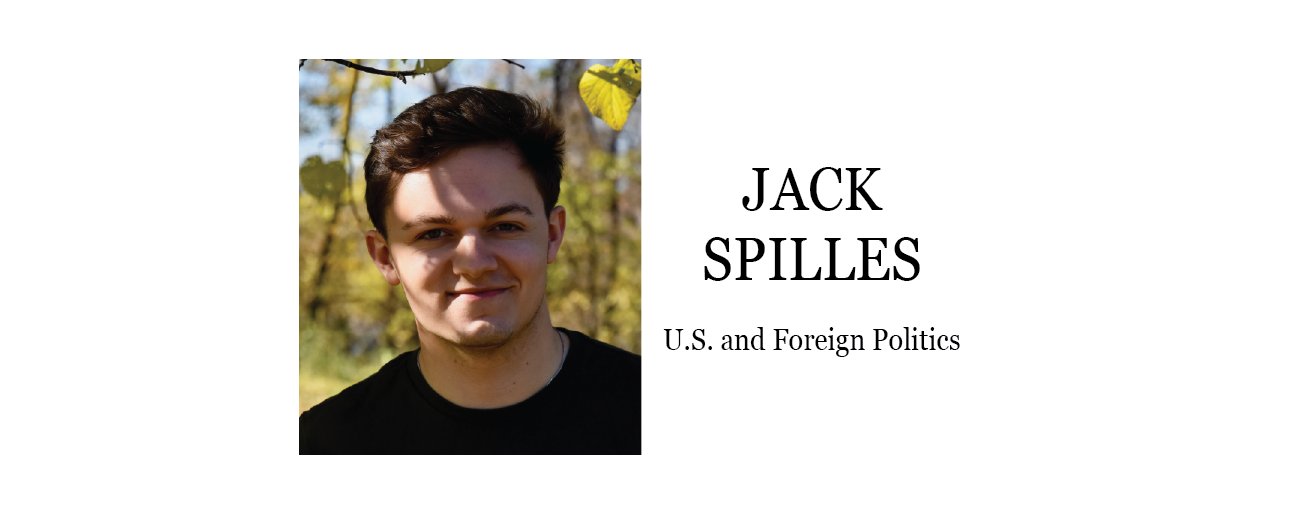Donald Trump has always been an unusual president. He has not acted like previous presidents or presidential candidates, often making crass remarks about political opponents or processes. He was the first person to hold the office without ever having served the United States in any formal capacity, whether it be in public office, the military or as an appointed official. He also holds one of the highest indictment counts for administrations in the last 50 years, behind only the Reagan and Nixon administrations (what a weird coincidence). In fact, in less than four years, there have been seven top Trump associates criminally indicted: Paul Manafort, Rick Gates, Roger Stone, Michael Cohen, George Papadopoulos, Michael Flynn and Steve Bannon. All of these indictments stem from actions that occurred in the service of the Trump campaign or administration. In addition to these, there have been several other associates of Donald Trump who have faced charges or are reportedly under investigation: Corey Lewandowski, former 2016 campaign manager; Brad Parscale, former 2020 campaign manager and Rudy Giuliani, Trump’s personal attorney. Surely this was not what most had in mind when Trump claimed that he would “surround myself only with the best and most serious people.”
Trump’s campaign associates are not the only ones involved in a few extracurricular activities, however. While Trump has been in office, he has violated the emoluments clause too many times to count by profiting from visiting foreign officials and his own visits to his businesses in the U.S. and abroad; has overseen acts of human rights violations on the southern border against migrants by ICE; has violated the Hatch Act by using his public office to promote certain goods and services and committed campaign finance violations by paying personal bills with campaign donations, which his lawyer Michael Cohen was indicted for. Not to mention that he has attempted to solicit foreign intervention in elections, both in 2016 and 2020, the latter for which he was impeached. Despite all of these crimes, and likely many more that have not yet come to light, Donald Trump still sits in the Oval Office and is running for a second term.
A major point of interest in the Mueller investigation, which looked into the ties between the Trump campaign and Russia in 2016, was Mueller’s act of not recommending charges against Trump despite having found evidence of the crime of collusion. What played heavily into this conclusion was a memo issued by the DOJ’s Office of Legal Counsel (OLC) in 2000 that reads “the indictment or criminal prosecution of a sitting President would unconstitutionally undermine the capacity of the executive branch to perform its constitutionally assigned functions,” a sentiment based in part on a position from the same office issued in 1973. While the norm has been reinforced that a sitting president cannot be charged with a crime, something that seems to violate the idea of governmental accountability, no norm or law exists that says a president cannot be charged with a crime after leaving office. In the wake of the Mueller investigation and impeachment trial, this idea has been thrown around, but often with an air of caution and hesitancy. To be sure, it is certainly outside the norm and would be an intensely complicated and costly political and legal undertaking, but it is important for the rule of law and the check on governmental power to follow through on such an idea.
Too many times in the past have presidents or those serving them gotten away with crimes simply due to the power of the office. In the 1970s, Nixon was not charged on criminal counts, despite the Watergate scandal and the ensuing fallout, simply because he resigned from the presidency. Later, the Iran-Contra affair occurred under Reagan and, while investigated, was for a time covered up by the administration through pardons that were issued to some of those involved by the next president, George H. W. Bush, who had served as vice president during the scandal. Reagan did not face charges for his involvement. In the late 2010s, the Obama administration decided not to investigate George W. Bush’s administration over the use of torture, despite the criminal nature of the acts and human rights groups calling for such action. Continuing to agree to “move on” when it comes to crimes committed by presidents can set that precedent for later presidents to act criminally with the understanding that the only consequences they suffer will be political, as we have seen in the past. Certainly, history will judge them, but that is not enough. Crimes committed by presidents are still crimes. The Trump administration has committed crimes. Let us make sure we hold them accountable.

